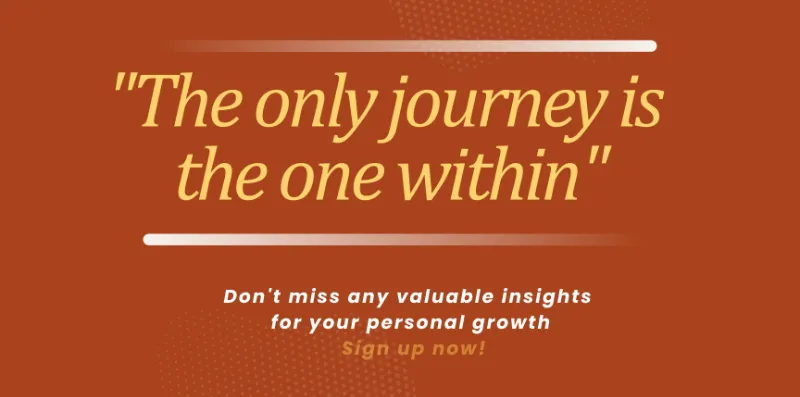Mastering Honest and Effective Conversations: Authentic Communication
Master authentic communication: active listening, empathy, giving and receiving feedback, and balancing transparency and tact in difficult conversations. Discover how these skills can help you.

Unlock the Power of Authentic Communication for Personal and Professional Success
"The single biggest problem in communication is the illusion that it has taken place." - George Bernard Shaw
Communication is the foundation of our personal and professional lives. It's how we connect, collaborate, and grow. But it's not just about talking—it's about authentic communication that comes from the heart and fosters genuine connections. In this article, we'll dive deep into the world of authentic communication, exploring the essential aspects, such as active listening, empathy, and giving and receiving feedback with sincerity.
Take, for example, a manager who listens to her team's concerns and provides honest feedback. By doing so, she creates a trusting environment that leads to increased motivation, teamwork, and success. That's the power of authentic communication in action.
I. Active Listening and Empathy in Professional Communication
Master Active Listening: The Key to Authentic Communication
Active listening is a vital component of authentic communication. It's about giving full attention to the speaker, asking questions for clarity, and offering verbal and non-verbal feedback. When you actively listen, you understand the message and its emotions and intentions.
Imagine a project manager, John, who listens attentively to his team members and encourages open discussions. By doing so, he ensures everyone feels heard and valued, leading to a more collaborative and productive team.
Empathy: The Driving Force Behind Effective Communication
Empathy is the ability to understand and share the feelings of others. It's essential for effective communication, as it allows you to build bridges and foster connections.
Let's go back to our project manager, John. When one of his team members, Sarah, faces a personal issue that affects her work, John empathizes with her situation and offers flexible solutions. By putting himself in her shoes, he maintains a strong working relationship and motivates her to stay engaged and committed to the project.
Cultivating empathy requires practice, patience, and a genuine desire to understand others. As you master active listening and develop empathy, you'll notice how your professional communication skills improve, paving the way for meaningful connections and collaboration. Now, let's explore how you can apply these skills to give and receive feedback with authenticity.

II. Giving and Receiving Feedback with Authenticity
A. Embrace Authentic Feedback: The Pathway to Growth and Success
One challenge many faces is the reluctance to give and receive honest feedback. Fear of confrontation, hurting feelings, or receiving criticism holds them back. But authentic feedback is crucial for personal and professional growth and success.
Imagine a team leader, Lisa, who hesitates to give constructive feedback to her team. As a result, performance issues remain unaddressed, and the team's progress stagnates. To overcome this barrier, Lisa must embrace the power of honest feedback.
B. The Art of Effective Feedback: Strategies for Meaningful Conversations
To help Lisa deliver impactful feedback, she can use the SBI (Situation-Behavior-Impact) model. By focusing on specific situations, behaviours, and consequences, Lisa can clearly and constructively communicate her feedback while maintaining a balance between praise and criticism.
C. Graceful Feedback Reception: Cultivating a Growth Mindset
Now, let's consider the other side of the coin—receiving feedback. When Lisa's manager provides her with feedback, she must cultivate a growth mindset to embrace it positively and use it for personal development.
By actively listening, reflecting on the feedback, and developing an action plan, Lisa can turn criticism into opportunities for growth. As she learns to give and receive authentic feedback, Lisa will find herself on the path to personal and professional success. Next, we'll explore how to balance transparency and tact in difficult conversations.

III. Balancing Transparency and Tact in Difficult Conversations
A. Transparent Communication: Building Trust and Navigating Tough Topics
Years ago, I faced a challenging conversation with a close friend about a sensitive topic. I knew being open and honest was essential for maintaining our relationship, but I also understood the importance of handling the conversation carefully.
I began by finding a private, comfortable setting where we could talk without interruptions. This helped create an environment conducive to transparent communication.
B. Tactful Communication: Mastering the Delicate Art of Challenging Dialogues
I chose my words carefully, using "I" statements to express my feelings and thoughts without placing blame or judgment on my friend. For instance, I said, "I feel hurt when you cancel our plans last minute," instead of ", You always cancel on me, and it's so selfish."
During our conversation, I also realized the power of silence. Instead of immediately jumping in with a response or rebuttal, I took a few moments to absorb what my friend shared, letting them know I was truly listening and valuing their perspective.
By balancing transparency and tact, we successfully navigated the difficult conversation, ultimately strengthening our friendship. As we move on to the next section, we'll explore how authentic communication can help overcome challenges faced by professionals and self-employed individuals.

IV. Overcoming Challenges Faced by Professionals and Self-employed Individuals
A. Conquer Self-Worth Struggles: Harness Authentic Communication for Confidence
A common misconception is that self-esteem is solely an internal process unrelated to communication. However, authentic communication can significantly impact your self-worth and confidence.
Consider a graphic designer, Mike, who often struggles with self-doubt. By practising authentic communication, Mike can share his ideas openly, receive constructive feedback, and develop his skills, ultimately boosting his self-confidence.
B. Set Boundaries and Manage Stress: The Authentic Communication Connection
Another misconception is that authentic communication is solely about expressing oneself. In reality, it plays a crucial role in setting boundaries and managing stress. By clearly communicating his limits, Mike can maintain a healthy work-life balance and reduce stress.
C. Achieve Clarity and Personal Growth: The Authentic Communication Advantage
Authentic communication also helps Mike foster personal growth and deepen relationships. By engaging in honest and open dialogues, he can gain clarity on his goals, learn from others, and form meaningful connections.
D. Financial Abundance and Authentic Self-Expression: Align Values and Careers
Some may argue that authentic communication has little to do with financial success. However, when Mike aligns his personal values with his career goals and leverages authentic communication to network and showcase his expertise, he paves the way for career advancement and financial abundance.
As we've seen, authentic communication can play a significant role in overcoming the challenges professionals and self-employed individuals face. Let's recap what we've learned and explore how you can implement these strategies in your life.
Conclusion
What if you could transform your personal and professional life with just one skill? Authentic communication has the power to do just that.
We've explored various aspects of authentic communication, from active listening and empathy to giving and receiving feedback and navigating difficult conversations with transparency and tact. We've also discussed how authentic communication can help professionals and self-employed individuals overcome challenges related to self-worth, setting boundaries, personal growth, and financial abundance.
Take the story of Mike, the graphic designer, as an example. By implementing authentic communication strategies in his life, he was able to boost his confidence, set healthy boundaries, foster personal growth, and advance his career.
Now it's your turn. As you apply these strategies in your own life, you'll find yourself on a path toward personal and professional growth, improved relationships, and a more balanced, fulfilling life. So take the leap and embrace authentic communication to unlock your full potential.

Are you looking for a weekly dose of inspiration to stay true to yourself and live your best life?
- Subscribe to our weekly newsletter of inspirational insights from the greatest minds ever!
- Let the wisdom from philosophers, writers and influential figures encourage you to embrace your uniqueness, overcome obstacles and live an authentic life.
- Each quote will come with my comments to help and inspire you on your journey towards authenticity.
- Receive a weekly reminder to be authentic and live your best life.
